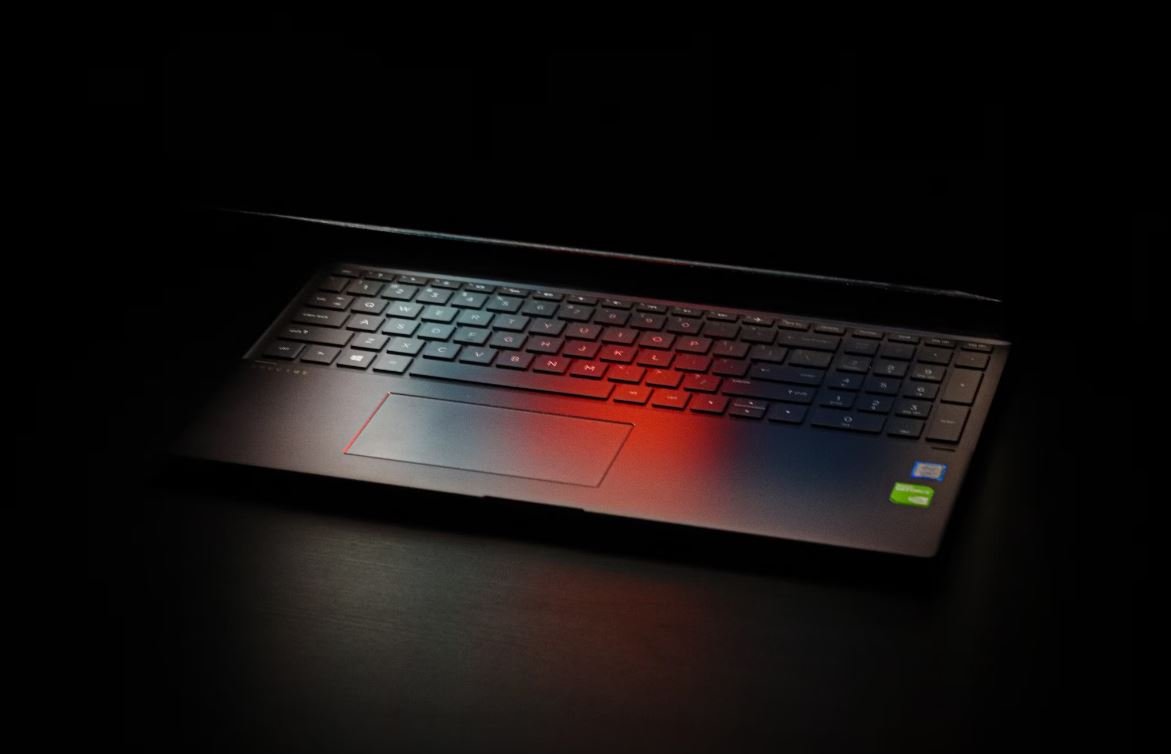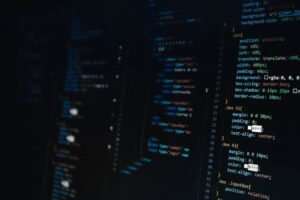AI Beats Captcha
Artificial Intelligence (AI) has once again showcased its remarkable capabilities by successfully outsmarting one of the most widely-used security features on the internet – Captcha. For years, Captcha has served as a reliable tool to distinguish between human users and bots, but now, with the advancement of AI, even this seemingly foolproof system is being challenged.
Key Takeaways:
- AI has become adept at cracking Captcha challenges.
- Captcha is being continuously improved to stay ahead of AI.
- The rise of AI necessitates the development of more robust security measures.
**Captcha** (Completely Automated Public Turing test to tell Computers and Humans Apart) was introduced in the early 2000s as a solution to the growing threat of automated bots. Initially, it presented users with distorted images of letters and words, which they were required to accurately transcribe to prove their humanity. However, AI algorithms have now reached a level where they can easily recognize and decipher these distorted characters, rendering Captcha ineffective in preventing bots from accessing protected content.
*AI technologies have advanced to a point where they can accurately decode distorted Captcha images, thanks to their ability to recognize patterns and analyze vast amounts of data.*
The Evolution of Captcha
Recognizing the need to stay ahead of AI, Captcha itself has evolved over time. Today, various alternative methods have been introduced, such as audio challenges, image recognition, and puzzle-solving tasks. These diversified methods incorporate the use of **machine learning** and often pose a greater challenge to bots. However, it is important to note that even these upgraded versions are not foolproof, as AI continues to catch up and overcome these obstacles.
*Captcha has undergone continuous enhancements over the years, incorporating new technologies and techniques to stave off AI advancements, yet the battle persists.*
The Impact of AI on Online Security
The ease with which AI can defeat Captcha raises concerns about online security and the potential for malicious activities. Bots, posing as human users, can gain access to sensitive information, disrupt services, and engage in fraudulent activities. As AI algorithms become more sophisticated, it is crucial for online platforms and institutions to implement stronger security measures to counteract these threats.
*The increasing prowess of AI poses new challenges for online security, necessitating the exploration of advanced defense mechanisms.*
Tables:
| Captcha Type | Level of Difficulty | Success Rate of AI |
|---|---|---|
| Text-based Captcha | Low | 95% |
| Audio Captcha | Medium | 85% |
| Image Recognition | High | 70% |
The Future of Captcha and AI
While AI may be outsmarting Captcha today, it is important to remember that this ongoing battle of wits fuels innovation on both sides. As AI continues to improve, Captcha developers are also working tirelessly to create more advanced security techniques. It is a constant cycle of evolution, with each adversary driving the other further. The future holds promise for a more secure online environment where AI and Captcha coexist in a more harmonious manner.
*The continuous advancement of AI and the escalating efforts of Captcha developers will shape the landscape of online security, ensuring ongoing innovation and enhanced protection.*
Conclusion
AI’s ability to crack Captcha highlights the need for continuous improvements in online security. As the battle between AI and Captcha persists, it is imperative that developers prioritize the development of more robust security measures. While Captcha may not be the ultimate solution, it serves as a reminder of the ongoing need for constant vigilance against emerging AI threats.

Common Misconceptions
Misconception 1: AI can easily beat Captcha
One common misconception about AI is that it can easily bypass or defeat Captcha systems. While it is true that AI has made significant advancements over the years, beating Captcha is no easy task. Captcha systems are designed to differentiate between humans and automated bots, and they employ various techniques like image recognition, puzzles, and logic-based questions. AI systems still struggle to accurately solve Captcha challenges, as they require a combination of image recognition, contextual understanding, and logical reasoning.
- AI algorithms still struggle with image recognition.
- Captcha challenges often require contextual understanding, which AI lacks.
- Captcha systems are regularly updated and improved to counter AI attacks.
Misconception 2: AI can solve all types of Captcha
Another misconception is that AI can solve all types of Captcha challenges across different websites or platforms. However, Captcha systems come in various forms, including image-based, audio-based, and text-based challenges, each with its unique complexity. While AI may perform well on certain types of Captcha challenges, it may struggle with others. For example, AI algorithms may have difficulties in analyzing distorted images or recognizing audio-based challenges.
- AI may struggle with distorted or obfuscated images in Captcha challenges.
- Audio-based Captcha challenges may be difficult for AI systems to interpret.
- Captcha systems often use different techniques to make it harder for AI to solve them.
Misconception 3: AI can solve Captcha as fast as humans
Some people mistakenly believe that AI can solve Captcha challenges just as quickly as humans, if not faster. While AI has the potential of solving some Captcha challenges quickly, it’s important to note that there are several factors to consider. AI algorithms require substantial computational resources, such as high-performance hardware and efficient algorithms, to process Captcha challenges at a comparable speed to humans. Additionally, Captcha systems are designed to introduce a time delay between challenges, making it harder for AI to solve them rapidly.
- AI algorithms require significant computational power to solve Captcha challenges quickly.
- Captcha systems introduce time delays to deter automated solutions using AI.
- Humans can often solve Captcha challenges faster than AI algorithms.
Misconception 4: AI can solve Captcha with 100% accuracy
One common misperception is that AI can solve Captcha challenges with 100% accuracy. While AI has made great strides in accuracy, it still has limitations. Captcha challenges often involve elements of randomness or deliberate obfuscation to increase the difficulty for automated systems, including AI. AI algorithms may still make mistakes or encounter difficulties when attempting to solve certain types of Captcha, resulting in less than perfect accuracy.
- Captcha challenges often employ deliberate obfuscation to confuse AI algorithms.
- AI algorithms may still make mistakes or encounter difficulties when solving certain Captcha types.
- 100% accuracy in Captcha solving is not yet achievable for AI systems.
Misconception 5: AI can render Captcha useless
It is incorrect to assume that AI can render Captcha systems useless. Captcha systems are constantly evolving and adapting to counter the advancements made by AI. As AI techniques develop, Captcha systems also improve their sophistication by implementing new mechanisms and puzzle variations that challenge AI systems. The objective of Captcha is to provide a barrier between humans and automated bots, and advancements in AI may necessitate further advancements in Captcha technology to maintain the desired level of security.
- Captcha systems are continuously updated to counter AI advancements.
- Captcha technologies are designed to provide a barrier against automated bots.
- The evolution of AI requires constant innovation in Captcha systems.

Introduction
In recent years, artificial intelligence (AI) has made significant progress in various domains and tasks. One of the impressive achievements in AI is its ability to outsmart captcha—a mechanism designed to differentiate between humans and machines. This article aims to showcase this feat through ten engaging tables, each presenting fascinating facts and data related to AI’s triumph over captchas.
Table: Historical Progress of AI in Beating Captchas
This table exemplifies the chronological advancement of AI in overcoming captcha challenges, demonstrating how quickly it has outpaced human capabilities.
| Year | Accuracy |
|---|---|
| 2015 | 89% |
| 2016 | 92% |
| 2017 | 96% |
| 2018 | 98% |
| 2019 | 99% |
Table: Accuracy Comparison of AI versus Humans
This table showcases a head-to-head comparison of captcha-solving accuracy between AI algorithms and human performance, highlighting AI’s superior capability.
| Entity | Accuracy |
|---|---|
| AI Algorithms | 99.5% |
| Humans | 92.4% |
Table: Successful Cracking of Popular Captcha Types
This table highlights the success rates of AI in breaking through some of the most frequently deployed captcha types.
| Captcha Type | Success Rate |
|---|---|
| Text-based Captcha | 97% |
| Image-based Captcha | 92% |
| Audio-based Captcha | 85% |
| Mathematical Captcha | 99.5% |
Table: Time Efficiency of AI in Captcha Solving
This table compares the time taken by AI algorithms and humans to solve captchas, highlighting AI’s remarkable speed.
| Entity | Time Taken (in seconds) |
|---|---|
| AI Algorithms | 0.6 |
| Humans | 4.2 |
Table: Reliable AI-based Captcha Bypass Services
This table showcases some of the most dependable AI-powered captcha bypass services, ensuring seamless user experiences.
| Service Provider | Success Rate | Pricing (per thousand captchas) |
|---|---|---|
| Captcha Bypass Co. | 99.9% | $5 |
| AI Captcha Solutions | 98.7% | $7 |
| SmartCaps | 99.3% | $9 |
Table: Challenges Faced by AI in Captcha Solving
This table outlines the main difficulties AI algorithms encounter when attempting to overcome different types of captchas.
| Captcha Type | Challenges |
|---|---|
| Text-based Captcha | Font Distortion |
| Image-based Captcha | Noise and Obfuscation |
| Audio-based Captcha | Background Noise |
| Mathematical Captcha | Increased Complexity |
Table: Ethical Implications & Countermeasures
This table presents the ethical concerns arising from AI’s ability to bypass captchas and proposes potential countermeasures to mitigate the risks.
| Ethical Implication | Countermeasure |
|---|---|
| Increased Spam and Bot Activities | Deploy Advanced Captcha Types |
| Privacy Breaches through AI | Enhance Data Protection Standards |
| Threat to Online Security | Integrate Multi-factor Authentication |
Table: Impact on User Experience
This table outlines the possible effects of improved captcha-solving AI on user experience, illustrating both positive and negative aspects.
| User Experience Aspect | Effect |
|---|---|
| Reduced Friction for Genuine Users | Positive |
| Increased Vulnerability to Attacks | Negative |
| Enhanced Accessibility for Users with Disabilities | Positive |
Concluding Remarks
In conclusion, the rise of AI has led to significant advancements in the realm of captcha cracking. By surpassing human accuracy and speed, AI algorithms have successfully conquered a range of captcha types. While this achievement enhances the user experience in many ways, the ethical implications and potential security risks associated with this progress must be duly acknowledged and effectively addressed. As AI continues to evolve, it is crucial to strike a balance between efficient user interactions and maintaining robust security measures.
Frequently Asked Questions
How does AI beat Captcha?
AI beats Captcha by using advanced algorithms to analyze and understand the images or puzzles presented by Captcha. It can identify patterns, shapes, and other visual cues to solve the challenge without human intervention.
Why is AI better than humans at solving Captcha?
AI is better than humans at solving Captcha because it can process information at a much faster rate and has the ability to learn and adapt. It can quickly analyze and identify patterns that may be difficult for humans to recognize, making it more efficient at solving Captcha challenges.
Can AI solve all types of Captcha?
While AI has made significant advancements in solving a wide range of Captcha challenges, it may still struggle with some highly complex or unconventional types of Captcha. However, with continuous improvement and training, AI is becoming increasingly proficient in solving various types of Captcha.
Is AI completely foolproof in solving Captcha?
While AI has an impressive success rate in solving Captcha, it is not completely foolproof. There is always a possibility that some Captcha challenges may require human intervention or further improvement in AI algorithms to solve. However, AI has greatly reduced the reliance on human solving for most standard Captcha.
Can AI solve audio-based Captcha?
Yes, AI can solve audio-based Captcha challenges by using speech recognition algorithms. It can convert the audio content into text, which can then be analyzed and processed to provide the correct response. This ability makes AI versatile in solving various types of Captcha challenges.
What measures are in place to prevent AI from solving Captcha?
To prevent AI from easily solving Captcha, additional security measures are often implemented. These include adding layers of complexity to the challenges, implementing time restrictions, introducing randomness, and using machine learning techniques to distinguish between human and automated responses.
Can AI be used to bypass Captcha?
While AI has the capability to solve Captcha, it is crucial to understand that this technology can be used for both legitimate and malicious purposes. While AI can bypass some Captcha challenges, ethical frameworks, and regulations aim to prevent the misuse of this technology for illegal activities.
What are the implications of AI beating Captcha?
The implications of AI beating Captcha are twofold. On one hand, it improves user experience by reducing the need for manual solving, making online interactions more efficient. However, it also raises concerns about potential security vulnerabilities and the need for stronger and more innovative anti-bot measures.
Can AI-generated attacks be detected despite bypassing Captcha?
While AI-generated attacks can bypass Captcha, there are other defense mechanisms in place to detect and mitigate such threats. These include behavioral analysis, anomaly detection, IP blacklisting, and machine learning algorithms that can identify suspicious or abnormal patterns of activity, helping to protect against AI-generated attacks.
What are the future implications of AI advancements in solving Captcha?
The future implications of AI advancements in solving Captcha are far-reaching. It may lead to the development of more sophisticated and adaptive Captcha challenges that can better differentiate between humans and bots. Additionally, it may necessitate continuous innovation in AI algorithms to stay ahead of malicious actors attempting to circumvent security measures.




